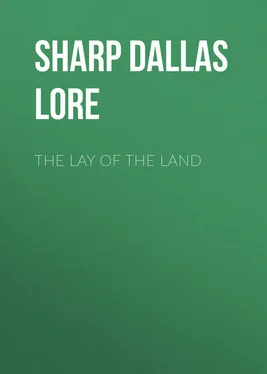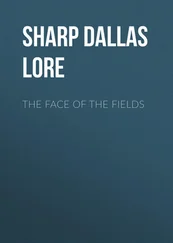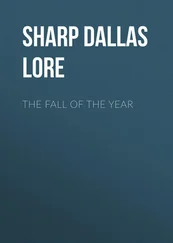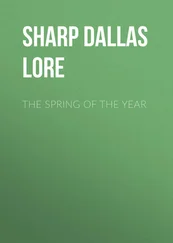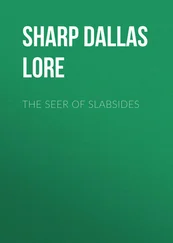Dallas Sharp - The Lay of the Land
Здесь есть возможность читать онлайн «Dallas Sharp - The Lay of the Land» — ознакомительный отрывок электронной книги совершенно бесплатно, а после прочтения отрывка купить полную версию. В некоторых случаях можно слушать аудио, скачать через торрент в формате fb2 и присутствует краткое содержание. Жанр: Природа и животные, foreign_antique, foreign_prose, на английском языке. Описание произведения, (предисловие) а так же отзывы посетителей доступны на портале библиотеки ЛибКат.
- Название:The Lay of the Land
- Автор:
- Жанр:
- Год:неизвестен
- ISBN:нет данных
- Рейтинг книги:3 / 5. Голосов: 1
-
Избранное:Добавить в избранное
- Отзывы:
-
Ваша оценка:
- 60
- 1
- 2
- 3
- 4
- 5
The Lay of the Land: краткое содержание, описание и аннотация
Предлагаем к чтению аннотацию, описание, краткое содержание или предисловие (зависит от того, что написал сам автор книги «The Lay of the Land»). Если вы не нашли необходимую информацию о книге — напишите в комментариях, мы постараемся отыскать её.
The Lay of the Land — читать онлайн ознакомительный отрывок
Ниже представлен текст книги, разбитый по страницам. Система сохранения места последней прочитанной страницы, позволяет с удобством читать онлайн бесплатно книгу «The Lay of the Land», без необходимости каждый раз заново искать на чём Вы остановились. Поставьте закладку, и сможете в любой момент перейти на страницу, на которой закончили чтение.
Интервал:
Закладка:
Among the birds in the tangle was a large flock of northern fox sparrows, whose vigorous and continuous scratching in the bared spots made a most lively and cheery commotion. Many of them were splashing about in tiny pools of snow-water, melted partly by the sun and partly by the warmth of their bodies as they bathed. One would hop to a softening bit of snow at the base of a tussock, keel over and begin to flop, soon sending up a shower of sparkling drops from his rather chilly tub. A winter snow-water bath seemed a necessity, a luxury indeed, for they all indulged, splashing with the same purpose and zest that they put into their scratching among the leaves.
A much bigger splashing drew me quietly through the bushes to find a marsh hawk giving himself a Christmas souse. The scratching, washing, and talking of the birds; the masses of green in the cedars, holly, and laurels; the glowing colors of the berries against the snow; the blue of the sky, and the golden warmth of the light made Christmas in the heart of the noon that the very swamp seemed to feel.
Three months later there was to be scant picking here, for this was the beginning of the severest winter I ever knew. From this very ridge, in February, I had reports of berries gone, of birds starving, of whole coveys of quail frozen dead in the snow; but neither the birds nor I dreamed to-day of any such hunger and death. A flock of robins whirled into the cedars above me; a pair of cardinals whistled back and forth; tree sparrows, juncos, nuthatches, chickadees, and cedar-birds cheeped among the trees and bushes; and from the farm lands at the top of the slope rang the calls of meadowlarks.
Halfway up the hill I stopped under a blackjack oak, where, in the thin snow, there were signs of something like a Christmas revel. The ground was sprinkled with acorn shells and trampled over with feet of several kinds and sizes, – quail, jay, and partridge feet; rabbit, squirrel, and mice feet, all over the snow as the feast of acorns had gone on. Hundreds of the acorns were lying about, gnawed away at the cup end, where the shell was thinnest, many of them further broken and cleaned out by the birds.
As I sat studying the signs in the snow, my eye caught a tiny trail leading out from the others straight away toward a broken pile of cord-wood. The tracks were planted one after the other, so directly in line as to seem like the prints of a single foot. “That’s a weasel’s trail,” I said, “the death’s-head at this feast,” and followed it slowly to the wood. A shiver crept over me as I felt, even sooner than I saw, a pair of small sinister eyes fixed upon mine. The evil pointed head, heavy but alert, and with a suggestion of fierce strength out of all relation to the slender body, was watching me from between the sticks of cord-wood. And so he had been watching the mice and birds and rabbits feasting under the tree!
I packed a ball of snow round and hard, slipped forward upon my knees, and hurled it. “Spat!” it struck the end of a stick within an inch of the ugly head, filling the crevice with snow. Instantly the head appeared at another crack, and another ball struck viciously beside it. Now it was back where it first appeared, and did not flinch for the next, nor the next ball. The third went true, striking with a “chug” and packing the crack. But the black, hating eyes were still watching me a foot lower down.
It is not all peace and good-will in the Christmas woods. But there is more of peace and good-will than of any other spirit. The weasels are few. More friendly and timid eyes were watching me than bold and murderous. It was foolish to want to kill – even the weasel. For one’s woods are what one makes them, and so I let the man with the gun, who chanced along, think that I had turned boy again, and was snowballing the woodpile, just for the fun of trying to hit the end of the biggest stick.
I was glad he had come. As he strode off with his stained bag I felt kindlier toward the weasel. There were worse in the woods than he, – worse, because all of their killing was pastime. The weasel must kill to live, and if he gloated over the kill, why, what fault of his? But the other weasel, the one with the blood-stained bag, he killed for the love of killing. I was glad he was gone.
The crows were winging over toward their great roost in the pines when I turned toward the town. They, too, had had good picking along the creek flats and ditches of the meadows. Their powerful wing-beats and constant play told of full crops and no fear for the night, already softly gray across the white silent fields. The air was crisper; the snow began to crackle under foot; the twigs creaked and rattled as I brushed along; a brown beech leaf wavered down and skated with a thin scratch over crust; and pure as the snow-wrapped crystal world, and sweet as the soft gray twilight, came the call of a quail.
The voices, colors, odors, and forms of summer were gone. The very face of things had changed; all had been reduced, made plain, simple, single, pure! There was less for the senses, but how much keener now their joy! The wide landscape, the frosty air, the tinkle of tiny icicles, and, out of the quiet of the falling twilight, the voice of the quail!
There is no day but is beautiful in the woods; and none more beautiful than one like this Christmas Day, – warm and still and wrapped, to the round red berries of the holly, in the magic of the snow.
III
A Cure for Winter
For, lo, the winter is past,
The rain is over and gone —
yet the snow lies white upon the fields, my little river huddles under the ice, and a new calendar hangs against the faded wall. But the storm is spent, the sun is out, there is a cheery drip, drip, drip from the eaves, eggs are sixty cents a dozen, and I am writing to the golden cackle of my hens. New Year’s Day, and winter gone! No, not quite gone, with eggs at such a price; still, it must be plain to every one that I can have but little of winter left: eggs are liable to come down any day.
It would be different, of course, were I buying eggs at sixty cents, – all the difference between a winter-sick and a winter-well condition. Selling eggs for sixty cents is a cure, though not for poverty when one has only thirty hens; but it is a cure for winter. The virtue, however, is not in the sixty cents. There is no cure for winter in mere money. The virtue is in the eggs, or, perhaps, it is really found in keeping the hens.
Keeping the hens, and the two pigs, the horse, the cow, the four boys, and the farm, for the year around, is a sure cure for winter, and for a great many other ills. In addition to the farm, one must have some kind of a salary, and a real love for nature; but given the boys and the farm, the love will come, for it lies dormant in human nature, as certain seeds seem to lie dormant in the soil; and as for the salary, one must have a salary – farm or flat.
The prescription, then, should read: —
℞
A small farm – of an acre or more,
A small income – of a thousand or more,
A small family – of four boys or more,
A real love of nature.
Sig. Morning and evening chores. The dose to be taken daily, as long as winter lasts.
This will cure. It is an old-fashioned household mixture that can be compounded in any country kitchen. But that is the trouble with it, – it is a home remedy that cannot be bought of the apothecary. There is more trouble with it, too, largely on account of the regularity with which milking time returns and the dose of chores. But it is effective. A farm and congenial chores are a sovereign cure for uncongenial time.
Here on the farm the signs of coming winter are not ominous signs. The pensive, mellowing days of early autumn have been preparing the garden and your mind for the shock of the first frost. Once past this and winter is welcome; it becomes a physical, spiritual need. The blood reddens at the promise of it; the soul turns comfortingly in and finds itself; and the digging of the potatoes commences, and the shocking of the corn, the picking of the apples, the piling up on the sunny side of the barn of the big golden squashes.
Читать дальшеИнтервал:
Закладка:
Похожие книги на «The Lay of the Land»
Представляем Вашему вниманию похожие книги на «The Lay of the Land» списком для выбора. Мы отобрали схожую по названию и смыслу литературу в надежде предоставить читателям больше вариантов отыскать новые, интересные, ещё непрочитанные произведения.
Обсуждение, отзывы о книге «The Lay of the Land» и просто собственные мнения читателей. Оставьте ваши комментарии, напишите, что Вы думаете о произведении, его смысле или главных героях. Укажите что конкретно понравилось, а что нет, и почему Вы так считаете.
